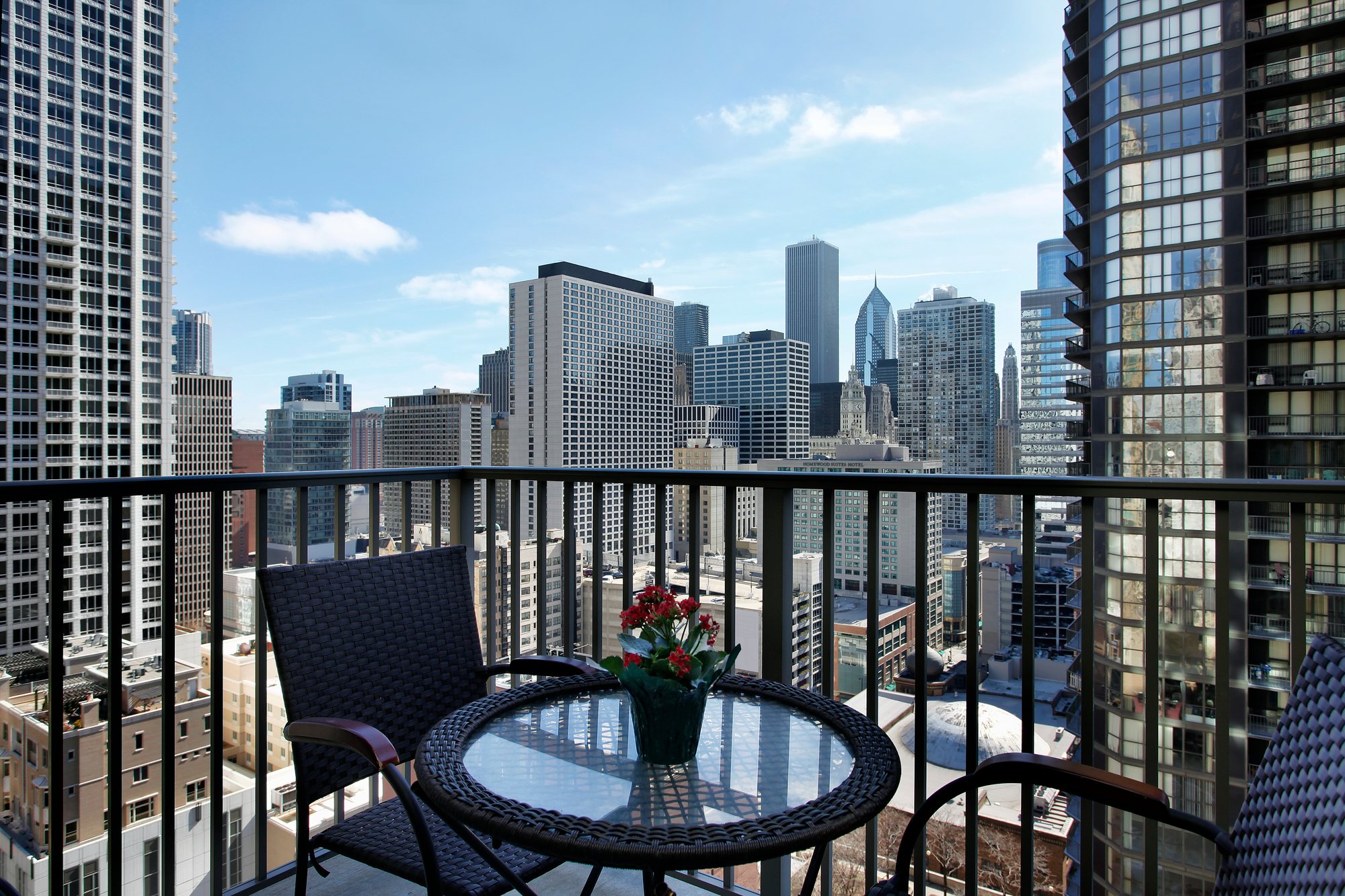Listen to the article
Single-Family vs. Multi-Family Properties for Detroit Real Estate Investors
When building wealth through real estate in Detroit, one of the first strategic decisions you'll face is whether to invest in multi-family or single-family properties. Each investment type offers distinct benefits and trade-offs, particularly in a market like Detroit where neighborhood dynamics, pricing, and rental demand vary widely. Understanding how each performs within this unique environment is essential for long-term success.
At Own It Detroit, we help investors navigate both sides of the residential investment spectrum. Whether you're managing a scattered portfolio of renovated bungalows or acquiring a stabilized duplex near Wayne State, our team ensures your property is positioned for optimal returns.
Multi-Family Properties in Detroit
Multi-family properties are buildings with two or more rental units under one roof. In Detroit, these include everything from side-by-side duplexes in neighborhoods like Grandmont to low-rise apartment buildings in areas such as Jefferson Chalmers or East English Village.
Multi-family properties offer distinct advantages for investors seeking scale and cash flow. By housing multiple tenants in a single structure, these properties reduce vacancy risk and can generate stronger income per square foot. Additionally, multi-family units in Detroit are well-positioned for Section 8 housing, which provides reliable, government-backed rental payments.
That said, multi-family buildings in Detroit often require significant renovations. Most were built before 1960 and need upgrades to plumbing, electrical systems, roofing, and interiors. Investors should also expect higher ongoing maintenance and more hands-on management—or work with an experienced local property manager who understands the nuances of multi-tenant operations.
Key advantages of Detroit multi-family properties include:
-
Built-in rental diversification: one vacancy doesn’t wipe out cash flow
-
Potential for higher gross rental income compared to SFRs
-
Opportunity to qualify for city tax incentives in designated zones
-
High demand for affordable housing, including Section 8 tenants
Additional advantages include:
Economies of Scale
One of the primary benefits of multi-family properties is the potential for economies of scale for investors with plans to build tremendous wealth.
When you have multiple units within a single property, your maintenance and operational costs per unit can be lower compared to owning several single-family homes. This can result in higher cash flow and better overall profitability from a rental property.
Diversification and Consistent Cash Flow
Multi-family properties allow you to diversify your tenant base and reduce cash flow risks.
If one unit becomes vacant, you still have income from the other units to cover your expenses. This diversification can reduce the risk associated with vacancies and turnover.
Experience Professional Management
Managing a multi-family property often requires professional property management services. The right property management company with multi-family experience is a significant benefit for investors!
These services can help streamline operations, handle tenant issues, and ensure the property complies with local regulations. A seasoned multi-family property manager, like Own It Detroit, can be a valuable asset for property owners choosing this type of real estate investment.
Single-Family Rental Homes in Detroit
Single-family rentals are the most common investment type in Detroit and a frequent starting point for both local and out-of-state investors. These detached properties are typically brick bungalows or colonials located in stable working-class neighborhoods, with acquisition and rehab costs often under $150,000.
Single-family homes offer simplicity, flexibility, and relatively low management complexity. These properties tend to attract longer-term tenants—often families—resulting in lower turnover. They’re also easier to sell, with exit options that include both investors and owner-occupants.
Common types of single-family properties include:
- Detached Single-Family Home: A standalone house not connected to any other residence.
- Patio Home: A smaller, single-family home with minimal yard space, often part of a managed community.
- Bungalow: A compact, often single-story home known for its efficient use of space and charming design.
- Ranch-Style Home: A single-story home with an open floor plan, often sprawling across a large lot.
- Luxury Home: A high-end single-family property with premium features, custom designs, and upscale amenities.
- Custom-Built Home: A one-of-a-kind single-family residence designed and built to the owner's specifications.
Because SFRs represent the bulk of Detroit’s housing stock (including turnkey properties), there’s a healthy supply of properties available for value-add renovation or turnkey acquisition. Renters in Detroit are often looking for homes with fenced yards, off-street parking, and updated mechanicals—all of which can help investors attract and retain tenants.
Benefits of Detroit single-family investing include:
- Lower purchase price and renovation cost compared to multi-family buildings
- Strong rent-to-price ratios in many zip codes
- Easier resale options and lower financing barriers
- Ideal for turnkey models with tenant and management in place
Advantages of SFR properties in Detroit
More Control and Privacy
When you are the sole owner of a single-family property, you enjoy a level of autonomy and control that can be highly appealing to many real estate investors. This control extends across various aspects of property ownership, including property management and maintenance decisions.
With a single-family property, you don't need to seek approval or consensus from other owners or tenants when making important choices. This means that you can set the rules and policies for your property, handle maintenance and repairs according to your preferred schedule and budget, and make strategic decisions regarding rent, renovations, or upgrades without the need for external input.
This level of independence can be particularly advantageous if you value the ability to shape the property's future according to your vision and financial objectives. It allows you to respond promptly to changes in the real estate market or the needs of your tenants, ensuring that your investment remains aligned with your goals and preferences.
Lower Entry Costs
Single-family properties are frequently the preferred choice for first-time real estate investors or individuals with limited capital resources. The primary reason for this preference is the relatively lower upfront costs associated with single-family properties.
Compared to multi-family properties, which can require a more substantial initial investment due to the purchase price and potential renovation expenses, single-family homes are often more budget-friendly. This affordability factor enables first-time investors to enter the real estate market with less financial risk.
Additionally, single-family properties typically involve simpler property management, making them a suitable option for those who are just starting in the world of real estate investment. These properties can offer a more straightforward and manageable introduction to property ownership while still providing the potential for long-term financial growth.
Better Market Flexibility
Single-family properties offer remarkable versatility across different real estate markets. Their adaptability is a key advantage for investors.
These properties can be utilized for both long-term rental investments and short-term rental opportunities. Investors can choose to maintain single-family homes as traditional rentals, providing a consistent and reliable source of rental income. Alternatively, they can explore the lucrative realm of short-term rentals, such as vacation homes or Airbnb listings.
This flexibility enables property owners to adjust their investment strategy to align with changing market conditions, seasonal demands, or personal preferences. It's this versatility that makes single-family properties an attractive and dynamic option for real estate investors seeking to maximize their returns.
Comparison: Single Family vs. Multi-Family in Detroit Real Estate Investing
Here’s how the two property types compare when it comes to the metrics that matter to Detroit investors:
| Factor | Single-Family Homes | Multi-Family Properties |
|---|---|---|
| Cost to Acquire | Lower | Higher upfront costs (per property) |
| Rental Income Potential | Moderate, tied to one tenant | Higher, with multiple income streams |
| Vacancy Risk | High (0% income if vacant) | Lower (other units continue to generate income) |
| Management Complexity | Lower, especially with turnkey | Higher—more tenants, maintenance, turnover |
| Scalability | Slower, one home at a time | Faster—more doors under one roof |
| Liquidity & Exit Options | Higher—can sell to homeowners or investors | Lower—narrower pool of buyers |
| Section 8 Suitability | Strong, especially for 2–3 bedroom units | Strong—ideal for guaranteed income per unit |
| Neighborhood Availability | Wide—especially in west and east side neighborhoods | More limited, especially in high-demand areas |
Which is Better for Building Wealth Through Real Estate?
The question of whether multi-family or single-family properties are better for building wealth through real estate is not one-size-fits-all. The "best" option depends on your investment goals, risk tolerance, and personal preferences.
Here are some factors to consider when making your decision.
Evaluate Your Investment Goals
If your primary goal is to generate consistent rental income and you have the resources to invest in a larger property, multi-family properties may be the better choice. They offer higher income potential and can provide a steady stream of cash flow.
On the other hand, if you're looking for long-term appreciation and prefer a more hands-on approach to property management, single-family properties might be a better fit. These properties can offer the potential for substantial capital appreciation over time.
Determine Your Risk Tolerance
Multi-family properties typically involve more significant financial commitments and may come with higher risks due to the larger number of tenants and units. However, single-family properties, with their lower upfront costs and more straightforward management, can be less intimidating for risk-averse investors.
Conduct Market Research
Consider conducting thorough market research to identify the demand and supply dynamics in your target location.
Some markets may be more conducive to multi-family investments, while others may favor single-family properties. Own It Detroit, with its expertise in the City of Detroit's requirements, can provide valuable insights into the local market.
Evaluate Property Management Preferences
Do you plan to manage your rental properties yourself or partner with experienced property managers? Single-family properties can be easier to handle with a DIY (do it yourself) approach, while multifamily properties can require more work and expertise.
Regardless of your choice, professional property management can make a significant difference in your investment's success. Own It Detroit specializes in single-family and multi-family property management. We have the experience to help you navigate the complexities of managing your real estate investments, including tax credit assets, senior living facilities, and Section 8 Housing.
What About Turnkey Investing in Detroit?
Detroit’s real estate market has become a national hub for turnkey investment. This model allows investors to purchase a fully renovated property—often with a tenant already in place—alongside a full-service property management solution. At Own It Detroit, we offer both single-family and select multi-family turnkey options based on current market demand.
Turnkey properties are ideal for out-of-state investors or portfolio owners who prefer a passive approach. Properties are rehabbed to market standards, priced for cash flow, and professionally managed from day one. Most of our turnkey offerings are single-family homes, but we also help clients identify duplexes or triplexes where the economics align.
Which Strategy is Right For You?
There’s no universal answer to whether single-family or multi-family is the better investment—it depends entirely on your goals, timeline, and available capital. Investors focused on monthly cash flow often gravitate toward multi-family properties, where multiple tenants create consistent income. Meanwhile, investors looking for long-term appreciation or easier exits tend to favor single-family homes.
Some investors build wealth by starting with single-family homes and eventually trading up to multi-family units using a 1031 exchange. Others choose to grow a portfolio of ten or more single-family homes across several Detroit zip codes to balance risk with flexibility.
No matter your path, Detroit’s affordability and strong renter demand make it a viable market for both strategies.
Let Own It Detroit Help You Choose the Right Path
The decision between multi-family and single-family properties ultimately comes down to your investment goals and personal preferences. Both options offer opportunities to build wealth through real estate, and the "best" choice is the one that aligns with your long-term vision.
Our team specializes in sourcing, renovating, leasing, and managing both single-family and multi-family properties throughout the City of Detroit. Whether you’re investing in a duplex in Islandview or building a scattered portfolio of brick colonials in Rosedale Park, we help you navigate local regulations, manage tenant turnover, and maximize your return on investment.
Contact us today to explore your turnkey real estate, single-family, or multi-family investment options.








